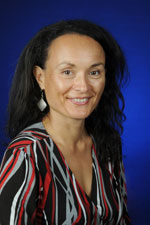Indigenous data – why is it important?

 In a data-driven world, indigenous peoples are becoming increasingly concerned about who owns and represents statistics about indigenous people: that is, who has access to the data, its cultural integrity, and how people’s privacy and autonomy is protected.
In a data-driven world, indigenous peoples are becoming increasingly concerned about who owns and represents statistics about indigenous people: that is, who has access to the data, its cultural integrity, and how people’s privacy and autonomy is protected.
Not only do governments collect data about their citizens, but so, too, do indigenous peoples about themselves – just think of the data that iwi need to collect about their own people in this post-settlement era. As an example, I’m a registered member of Waikato-Tainui. The central administration knows six or so generations of my whakapapa because becoming registered means putting your links on paper that a kaumatua then signs off. It knows my home marae and all sorts of personal details such as where I live and my birth date. As I have been the privileged recipient of educational scholarships from the iwi, it also knows my academic record and quite a lot of personal stuff about my goals and aspirations.
So why is this important? Indigenous people have historically had a problematic relationship with researchers, academics and other data collectors. Researcher Andrew Sporle, pictured at right (Rangitāne, Ngāti Apa, Te Rārawa) recently told me that “From a Māori perspective, we were all too often the researched, not the researchers, and Māori realities were often portrayed as a strange and inferior ‘other’. Indigenous peoples are asserting the right to govern and protect the data that are so important to our development. We cannot afford to lose control of data about us.”
Data, he added, is a “highly valuable strategic asset” for Māori development. “In the age of big data, Māori want access to data to support our decision‐making and to be involved when big data is used to make decisions about us.”
In this field, things have been moving fast of late, and New Zealander statisticians are among the leaders. Andrew and Tahu Kukutai pictured left (Ngāti Maniapoto, Te Aupōuri), Associate Professor at the Institute of Demographic and Economic Analysis, University of Waikato, are among the founding members of Te Mana Raraunga (the Māori Data Sovereignty Network), which was set up last year to assert Māori rights and interests in relation to data.
The group’s guiding motto is “He whenua hou, Te Ao Raraunga; Te Ao Raraunga, He whenua hou”, or “Data is a new world, a world of opportunity.” It advocates “for the development of capacity and capability across the Māori data ecosystem, including data rights and interests, data governance, data storage and security, and data access and control”.
Andrew and Tahu attended last month’s Indigenous Open Data Summit in Madrid, Spain, alongside independent statisticians Kirikowhai Mikaere (Tūhourangi, Ngāti Whakaue) and James Hudson (Ngāti Pukeko, Ngāti Awa, Ngāi Tai, Tūhoe), a researcher for Auckland Council’s Independent Māori Statutory Board. The summit, a first of its kind, provided a forum to discuss what action was being taken to protect the use of data about indigenous peoples.
Tahu and John Taylor, Emeritus Professor at the Centre for Aboriginal Economic Policy Research at the Australian National University, have edited the just-released first book on indigenous data, titled Indigenous Data Sovereignty – Towards an Agenda, published by ANU Press.
It’s free to download and provides a comprehensive overview of why indigenous oversight of data is important, focusing largely on Australasia. It’s an interesting read and provides a perspective on data that has been missing for too long.
The local contributors include Darin Bishop (Ngāruahine, Taranaki), team leader of organisational knowledge at Te Puni Kōkiri, the Ministry of Māori Development; Dickie Farrar (Whakatōhea, Te Whānau ā Apanui, Te Aitanga ā Mahaki), CEO of the Whakatōhea Māori Trust Board; James Hudson, mentioned above; Maui Hudson (Ngāruahine, Te Mahurehure, Whakatōhea), Associate Professor in the Faculty of Māori and Indigenous Studies at the University of Waikato; GP Rawiri Jansen (Ngati Hinerangi); Lesley McLean (Whakatōhea, Te Whānau ā Apanui), tribal database coordinator for the Whakatōhea Māori Trust Board; and leading demographer Ian Pool, Emeritus Professor at Waikato University.
Atakohu Middleton is an Auckland journalist with a keen interest in the way the media uses/abuses data. She happens to be married to a statistician. See all posts by Atakohu Middleton »